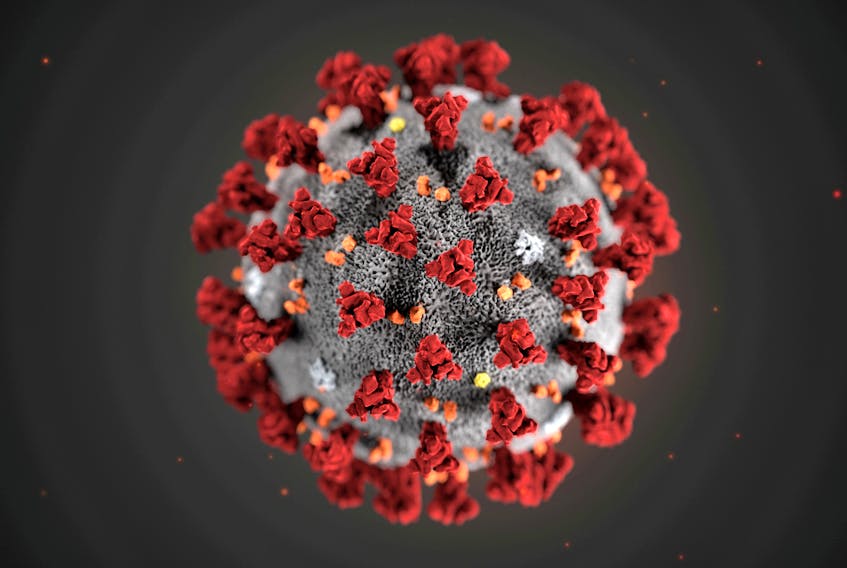It is well documented globally that women are disproportionally and negatively affected in a crisis.
As recently as this month Statistics Canada reported that one in 10 women are “very or extremely concerned about the possibility of violence in the home” during this pandemic.
Pre COVID-19 the status of women in Newfoundland and Labrador was precarious, exasperated by lack of childcare and reproductive healthcare, high rates of domestic violence, a staggering wage gap, and enduring poverty.
During COVID-19, N.L. women are bearing the brunt of not only keeping us safe on the frontlines on poor wages, a lack of benefits, non-existent childcare but with a woeful lack of recognition by our government.
The shaky state of health care systems in N.L. is not new, but the fact that women make up the majority of those working within them may be news for some. Katherine Scott in “COVID-19 response must address gender fault lines” reminds us, “women represent over 90% of nurses, 75% of respiratory therapists, and 80% of those working in medical labs.” These are the essential workers everyone is rightly touting as heroes, the women on the front lines of COVID-19 containing the damage. And, in hot spots of COVID-19 “90 per cent of the personal support workers who do the lion share of work in long-term care homes and home care work in the community are women.”
The pivot that now sees “women’s work” as essential work has amplified gender inequalities and no more so than in the absolute necessity for women to keep working safely, on a livable wage, with the support of childcare.
Yet women are neither meaningfully consulted nor protected in the government response to this pandemic, even within work almost entirely run on the backs of underpaid and undervalued women. Women working across the frontlines, from childcare to cleaning, continue to lack personal protection equipment (PPE) placing women — and by extension their families — at higher risk.
A gender-based policy would safeguard PPE specific to the needs of women, prioritize and target distribution to them, and value their most basic rights.
Pre-COVID-19 women, whose work constitutes almost 60 per cent of all part time work, were poorer than their male counterparts and now more than ever the government must ensure that all economic stimulus packages are laser focused on increasing their economic resilience beyond this pandemic.
We simply cannot allow those who cared for us at great personal expense to be ignored when the ‘new normal’ creeps back in.
When a crisis hits, from natural disasters to economic downturns, women pay the price through escalating violence, and as predicted violence against women and children is spiking globally since COVID-19. Women are literally locked in with their abusers, collectively experiencing an insufferable form of domestic terrorism.
We need funding to protect and prop up under-resourced women’s organizations.
Any new monies must be flexible to allow shelters and frontline organizations to expand and adapt their criteria, from sheltering women and children with COVID-19, to housing pets, opening hotlines, and arranging emergency transportation out of rural and remote communities.
Sadly, Canada does not keep race-based data on how racialized and Indigenous women are uniquely affected by crisis, but we know that our Indigenous communities are overwhelmed with the lack of decent water, poor health outcomes, poverty, racism, and the sheer expense of transporting medicine and supplies into remote communities, all of which drastically inhibits their ability to push back against COVID-19.
Racialized women, marginalized genders, folks living with disabilities, and migrant communities must not be left in harm’s way, and a strong gender-based response is an important part of that.
Two months into this pandemic and the N.L. government has all but ignored the tremendous impact COVID-19 is having on women, and time is running out to alleviate the dangers caused by that negligence.
We need you to listen to women and meaningfully consult us on our expertise. Ensure immediate and decisive protections for women and children living in violence, expedite the distribution of critical and appropriate PPE to women working on the frontlines, and begin to develop an economic stimulus package directed at women to support our economic survival post-COVID-19.
Too many women are bearing the brunt of COVID-19 who are caught in a double bind of unsafe work and an unsafe home, all the while staring down at a very bleak financial future.
Women have stepped up, as we always do, and now we need our government to finally stand with us.
Jenny Wright is a women’s rights advocate, educator and registered Social Worker. She is the co-founder of the Landing Services and is an expert panelist with the Canadian Femicide Observatory for Justice and Accountability. Gillian Pearson is the founder of advocacy group Parents for Affordable Childcare NL, a full-time working mom of two and graduate student at Memorial University where she is a member of the Gender and Politics Research Lab. They both write from St. John’s.








